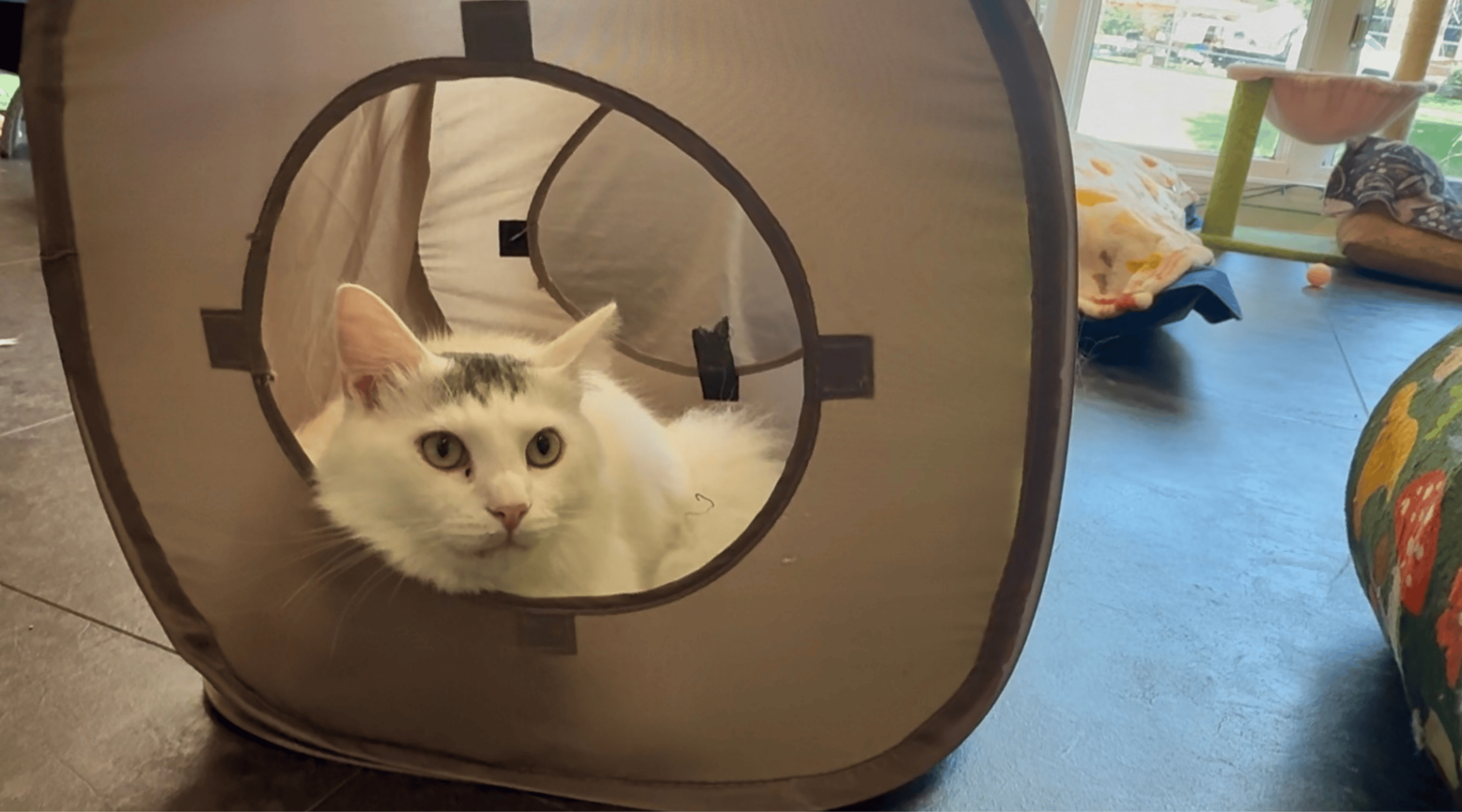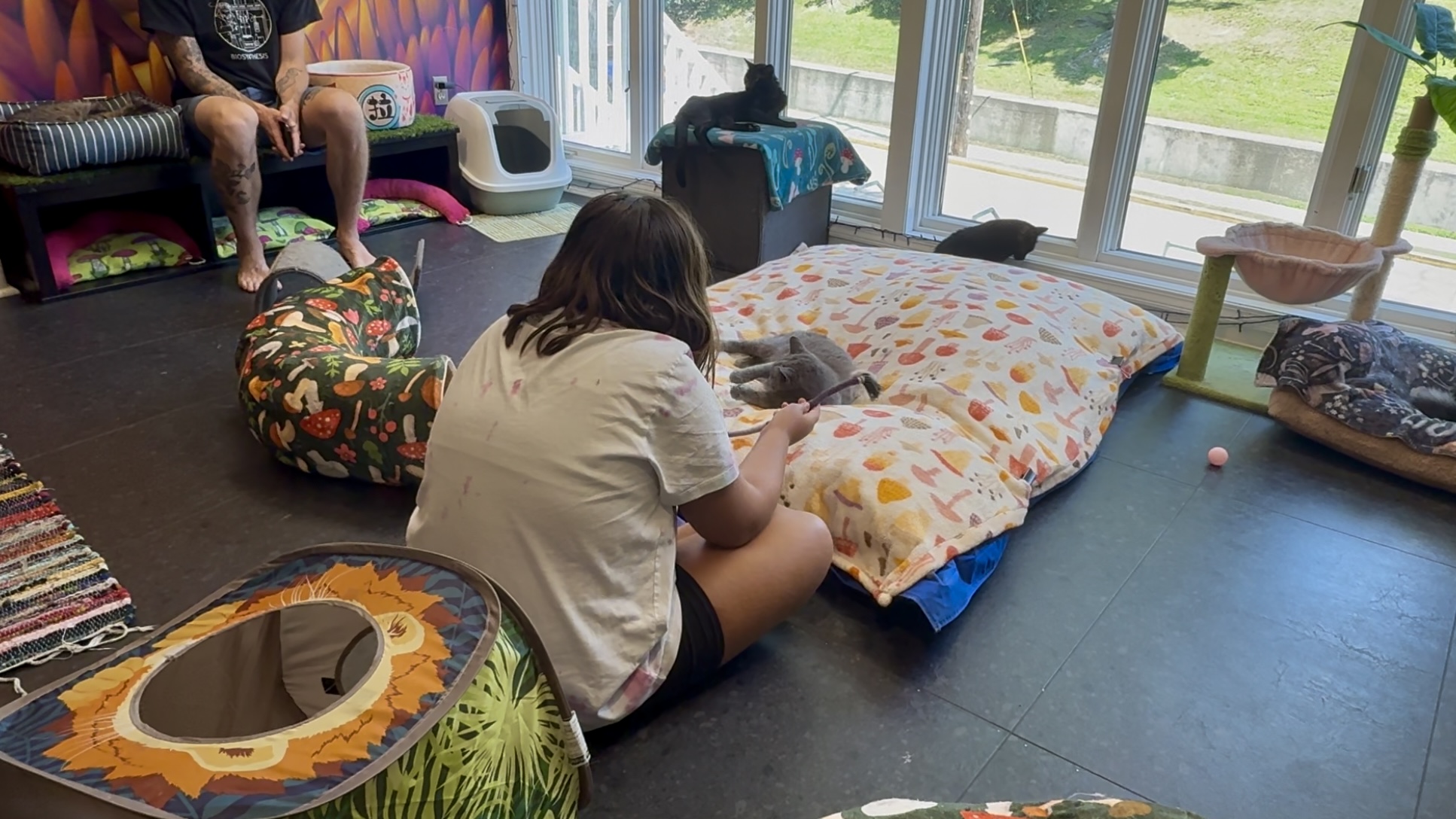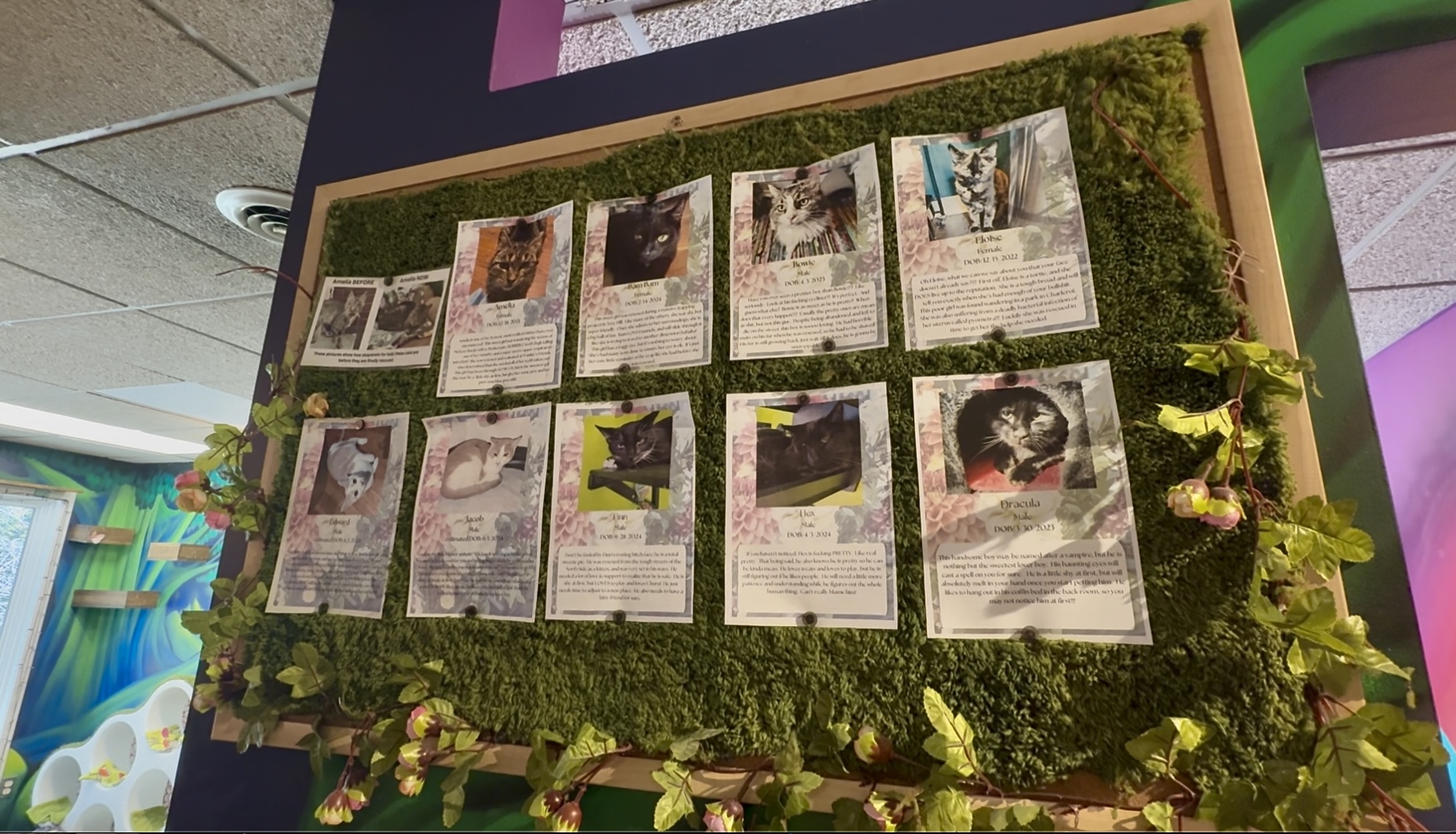
When Anna Montano bought her home on Pittsburgh’s North Side five years ago, she knew nothing about rescuing cats.
But when cats just started showing up everywhere, Montano jumped into action, watching YouTube videos and talking to other rescuers.
Now, Montano owns and operates Whisker Wonderland, a cat lounge in Bellevue. She also traps, neuters and returns feral cats within and outside Pittsburgh city limits.
“In the first year, I probably spent easily $15,000 in vet bills,” Montano said. “What people don’t realize is many cats found on the street don’t just need spayed and neutered -- they need care for other medical issues.”
Montano relied heavily on the City of Pittsburgh’s free spay and neuter program, which was started in 2012 to help manage stray cats and assist residents who needed the service for their pets. Residents could apply for five vouchers a year.
City officials halted a spay and neuter program for animals last year -- though feral cats are still eligible -- and plan to soon launch an expanded program that will include options for organizations like Montano’s. City residents living on a low income who have pets may also qualify.
In 2023, 974 dogs and cats were spayed or neutered through the program, according to an annual report from the city. This number went down to about 100 in 2024, Humane Animal Rescue of Pittsburgh Executive Director Dan Cody said.
The group is under contract with the city to provide services for the program, awarding the rescue $70,000 annually for 2025-27.
The drop in spays and neuters happened after the program was paused in February, then restarted a month later to include only feral cats. Feral cats have not been part of the program this year, said Emily Bourne, a spokesperson for the City of Pittsburgh.
The drop in spays and neuters happened after the program was briefly paused in February, then restarted a month later to include only feral cats.
City officials paused the program last year because pet owners outside the city were applying for vouchers, Director of Public Safety Lee Schmidt said.
“Some of it was anecdotal information. Some folks kind of told on themselves,” he said.
Only city residents are eligible for the spay and neuter services. Schmidt could not clarify how many nonresidents applied or if they were awarded vouchers.
Now, almost 18 months later, local rescue organizations feel the effects of the program’s limitations.
“COVID-19 caused a huge uptick in adoptions because people were excited to be back home, but once they went back to work, we noticed a huge uptick in cats on the street, many friendly,” Montano said.
“Friendly” is a term the trap and rescue community often uses to describe stray cats that are not feral.
Nationally, shelter intake of animals increased by 9.8% in 2021, according to Best Friends Animal Society. Strays and transfers between shelters accounted for most of the jump. The increase in cat intake was also 3% higher than that of dogs.
Locally, Montano sees more demand -- she says pausing the spay and neuter program has caused even more stress for her business.
“It’s literally like taking the ocean and trying to drain it a spoonful at a time; we just can't keep up with it,” Montano said. “I can’t tell you the amount of phone calls and texts we get each day about someone finding a cat outside.”
Oakland TNR Coalition founder Lydia Swanson said the organization's cat intakes are up 47% compared to this time last year, while adoptions are only up 25%. TNR stands for trap, spay, and neuter.
“We’re also seeing volunteers who could normally cover a $90 spay or neuter not be able to do that anymore as the general cost of living has gone up,” Swanson said. “Those three cats you were feeding by now might have turned into nine or 12, but it could’ve been stopped in the beginning [with the voucher].”
For the average pet owner, spaying and neutering may be a barrier, even with discounted rates. HARP currently offers the surgery for cats at $133; Animal Friends’ rate for pet cats is $84 and $75 for feral cats.
Several expansions to the city’s program were planned for the beginning of the year, which Schmidt said are tentatively scheduled for the end of this month, as the city’s Bureau of Animal Care & Control has been developing and testing a new online system.
“A big part of the reason we wanted to get to the online system is for better data tracking and better information tracking on this program,” Schmidt said. “How effective is [the program]? Where is it utilized the most?”
The new program guidelines will include two vouchers for pets of low-income residents and 30 vouchers for registered trappers living within the city limits. For low-income residents, allowances may be given for litters that need to be spayed and neutered at the same time.
Residents will be able to apply for vouchers online instead of submitting them in the mail as they did in the past. Schmidt did not specify how long the approval process will take.
In the meantime, Montano says she’s worried that with Medicare, Medicaid, and Supplemental Nutrition Assistance Program (SNAP) cuts, more cats will end up on the street.
“If people can't afford to feed their kids, what are they going to do with their pets?” Montano said. “I don't even have time [to trap feral cats] because I have to deal with the friendly ones that have been abandoned, that don't know how to live outside.”
Swanson said donations are already low for their organization and is also worried they will continue to drop.
“We want to focus on spaying and neutering, but when we have loads of kittens coming in, we have to give them the basics of food, shelter, other more important vet care,” Swanson said. “It’s really hard to utilize resources for all our needs.”
Cindy Cole, senior director of communications at Animal Friends, said reminding residents of community resources is important at this time.
“We partner with over 40 food pantries and give them pet food to make sure people can keep their animals,” Cole said. “Our Chow Wagon Pet Food Bank also provides food monthly.”
Similarly, Ellie’s Pet Pantry at HARP offers pet owners food, toys, and other necessities.
“We know those patrons pretty well, so we do end up hearing some of the stories behind the scenes about what's going on,” Cody said. “We’re here to provide that extra help.”
Animal Friends recently announced a temporary program that will offer limited free spay and neuter surgeries for pets and community cats to City of Pittsburgh residents. The program will run on selected days in September.
“The city of Pittsburgh and their spay and neuter program is great, but while it's being restructured…people need an affordable option,” Cole said. “We ourselves are seeing over 40% capacity for cats and kittens, so there is a real need and overpopulation is real.”

Cody said he is excited for the expansion of the city’s spay and neuter program. The organization has done about 2,220 spays and neuters this year outside of the city’s program, a number that Cody says is lower than usual.
HARP has also seen a rise in pet abandonment this summer, including individuals leaving animals at their shelters overnight, which is something Cody hopes the city’s program can help combat.
“We’ve been hovering at 90 or 95% physical capacity for the last year and a half,” Cody said. “We're trying to work with the city. We're trying to work with the state and look for solutions.”
Cody said a part of their increased shelter intake is due to “backyard breeders,” individuals who breed animals, often in their own homes.
“They’re legally allowed to do it, breed up to 25 puppies per year, but there’s really no way to tell if they’re following that,” Cody said. “You don’t have to even have a business license until you’re having more than 25 a year.”
HARP officials have started to talk about the possibility of bringing a spay and neuter requirement to the city. Cities like Los Angeles and Fort Worth require dogs and cats over a certain age to be spayed or neutered.
In Fayette County, Connellsville Township adopted an ordinance in April to regulate stray and feral cats, outlining ownership requirements and imposing penalties if owners do not spay or neuter them.
While it is still a bit early to gauge the ordinance’s impact, it is a “step in the right direction,” said Luke Szymanski, Fayette Friends of Animals’ director of operations.
“I think the best direction would be to increase funding for TNR and teaching in general,” Szymanski said. “The people that are feeding the cats, if we help provide them with resources, we can help the stray population quicker and get them better care.”
Szymanski said his organization has seen an increase of more than 50% in adoptions for this year but are operating at close to shelter capacity.
“We’re still getting calls every single day and sometimes having to turn people away,” Szymanski said. “But we are still able to give them food and redirect to other local organizations.”
The group also recently secured a grant to fund and create a spay and neuter program similar to Pittsburgh’s where county residents can apply for vouchers to cover the cost of the surgery.
“We’re in the process of partnering with local vets to get this up and running as soon as possible,” Szymanski said. “We know the county needs it.”
